
How to get URL link on X (Twitter) App

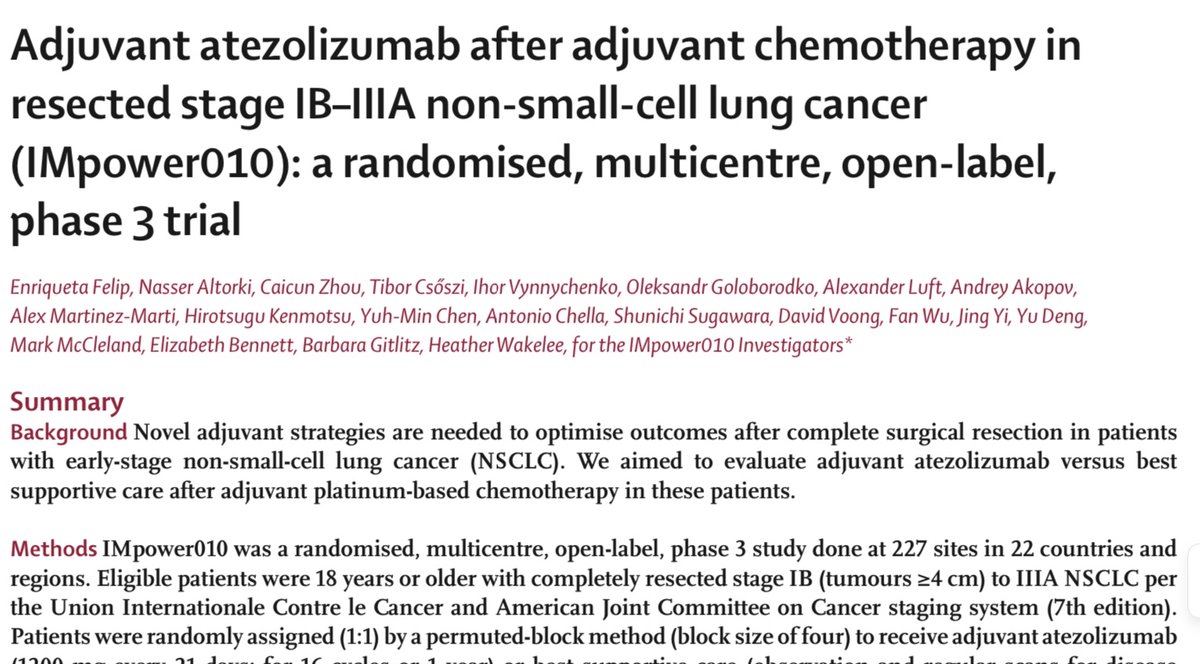
 I thought we’d close out the month with a trial that’s so new that its impact is not yet agreed upon, and its findings have not ossified into standard practice. It combines two strands that have run through the month: benefit of adjuvant therapy, and the advance of immunotherapy.
I thought we’d close out the month with a trial that’s so new that its impact is not yet agreed upon, and its findings have not ossified into standard practice. It combines two strands that have run through the month: benefit of adjuvant therapy, and the advance of immunotherapy.

 All of the randomized studies we’ve looked at to date have been phase III studies, meaning that they are randomized studies with sufficient statistical power to demonstrate a clinically meaningful difference. Today we’ll look at a randomized phase II study. 2/11
All of the randomized studies we’ve looked at to date have been phase III studies, meaning that they are randomized studies with sufficient statistical power to demonstrate a clinically meaningful difference. Today we’ll look at a randomized phase II study. 2/11
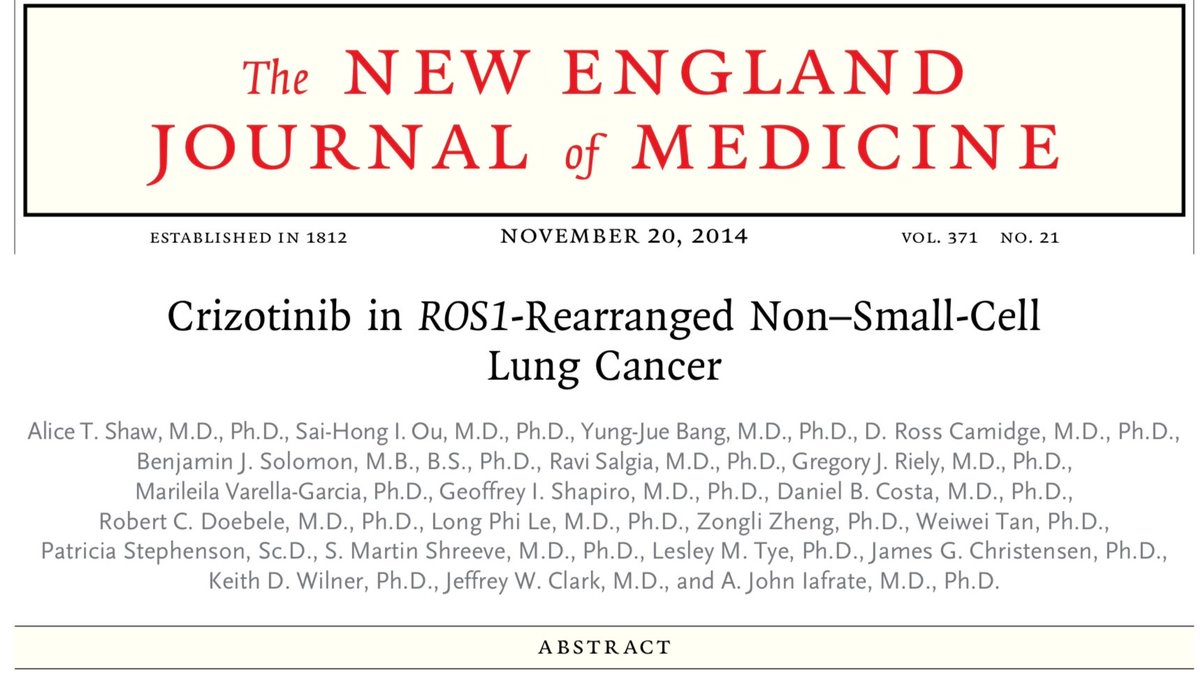
 This month I have focused exclusively on randomized studies, because I believe strongly that they are our best tools for evaluating the benefits and harms of cancer therapies. Today will be my sole foray into non-randomized studies. I hope to illustrate some of their limitations.
This month I have focused exclusively on randomized studies, because I believe strongly that they are our best tools for evaluating the benefits and harms of cancer therapies. Today will be my sole foray into non-randomized studies. I hope to illustrate some of their limitations. 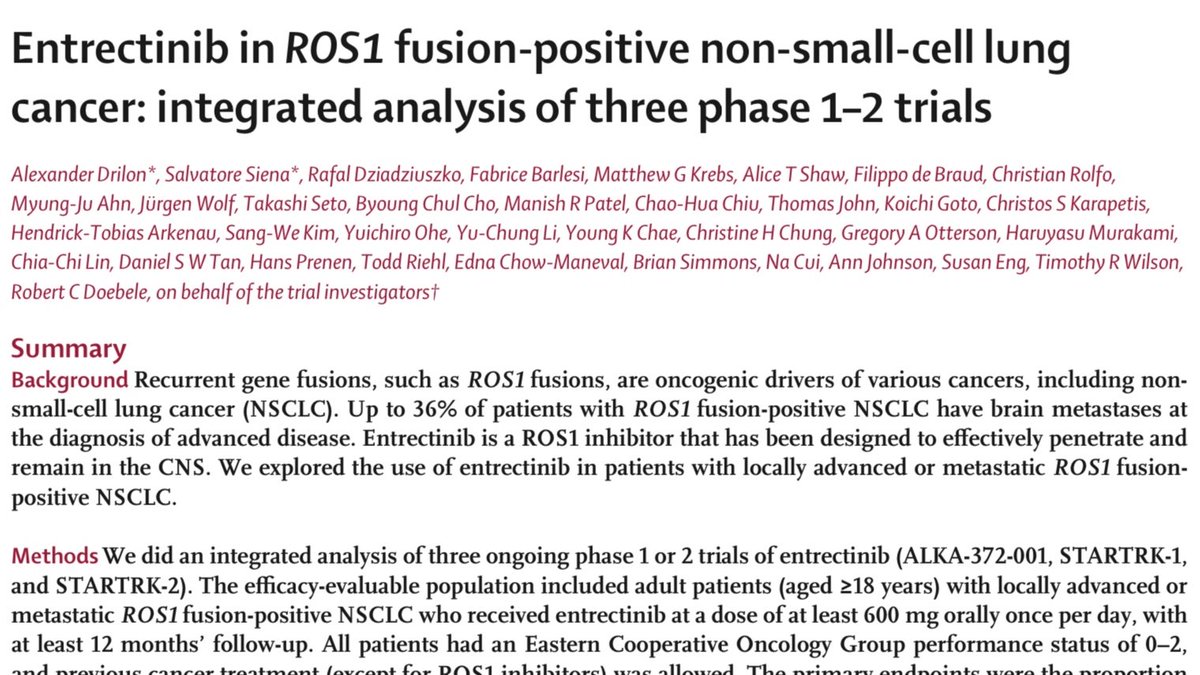


 Today’s trial is one of the most thought-provoking of the month, and it has been discussed widely since its publication in 2010. It is a trial looking at the timing of referral to palliative care for people with advanced, incurable lung cancer. 2/19
Today’s trial is one of the most thought-provoking of the month, and it has been discussed widely since its publication in 2010. It is a trial looking at the timing of referral to palliative care for people with advanced, incurable lung cancer. 2/19
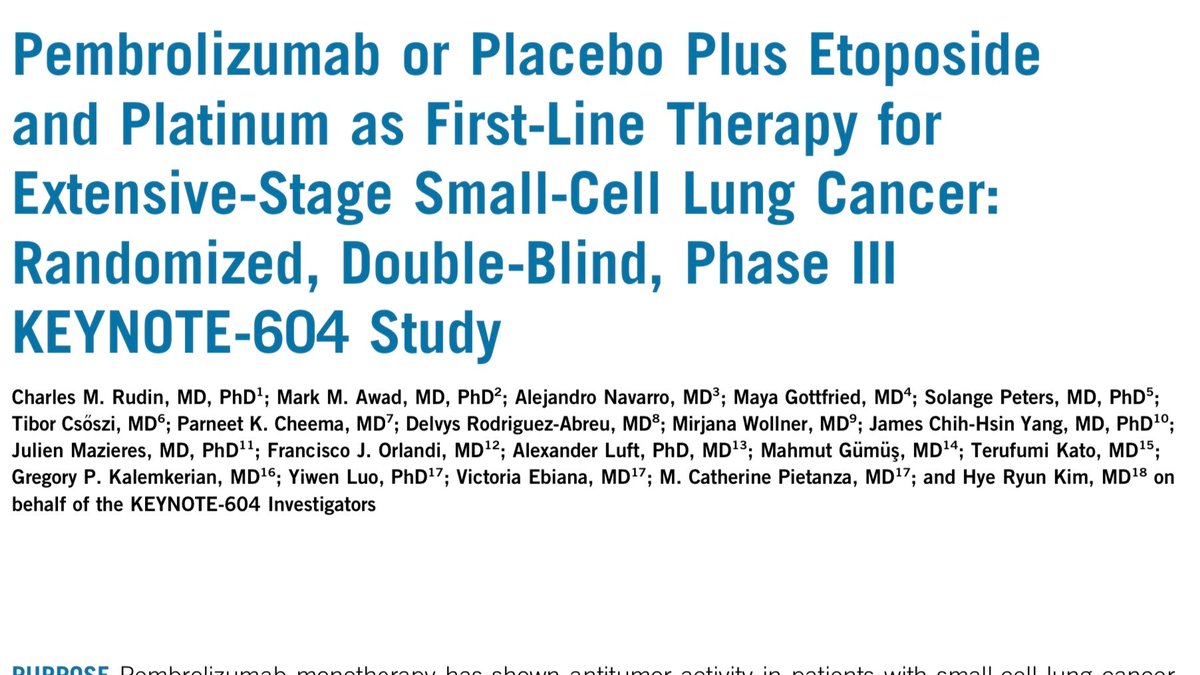
 Today we are returning to small cell lung cancer, a disease that we previously considered on 10 November.
Today we are returning to small cell lung cancer, a disease that we previously considered on 10 November.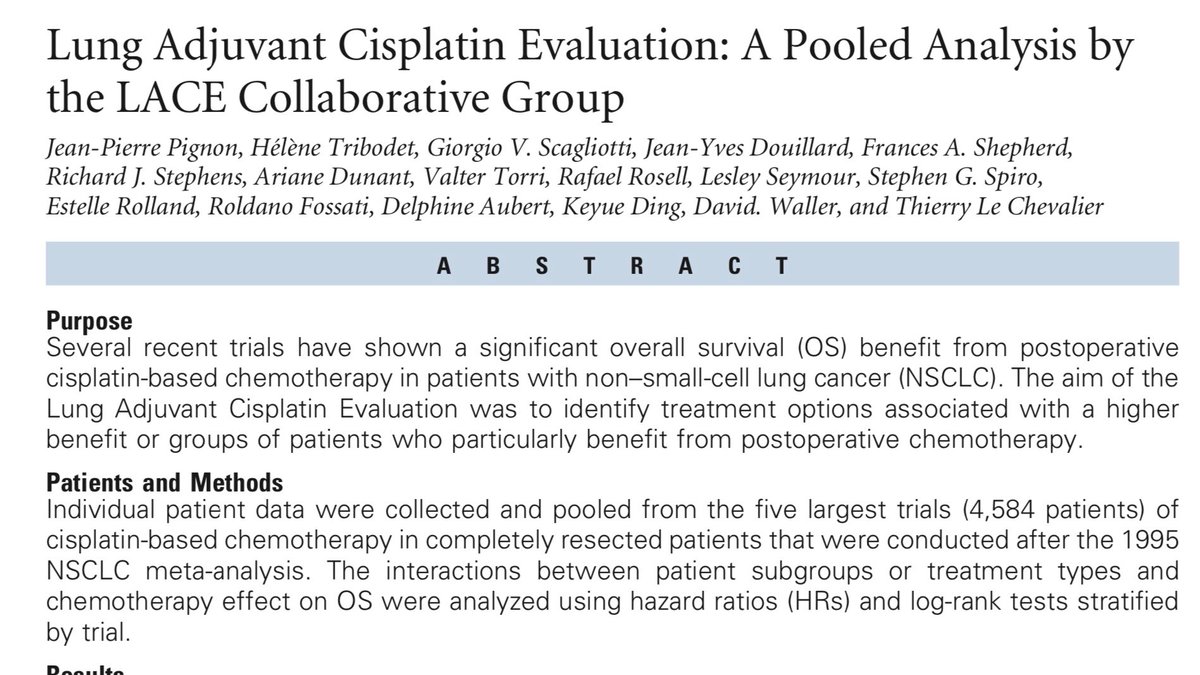
 Throughout these summaries I have proposed that the randomized controlled trial is our most powerful form of evidence for the effectiveness of medical interventions. Today we’re going to look at a potentially stronger type of evidence: meta-analysis. 2/12
Throughout these summaries I have proposed that the randomized controlled trial is our most powerful form of evidence for the effectiveness of medical interventions. Today we’re going to look at a potentially stronger type of evidence: meta-analysis. 2/12

 To date we have reviewed at a couple of trials looking at the role of surgery in multidisciplinary management (Nov 6 & 8). Today we’ll look at a proper randomized trial of two surgical procedures for staging the mediastinum (the middle of the chest, between the lungs). 2/16
To date we have reviewed at a couple of trials looking at the role of surgery in multidisciplinary management (Nov 6 & 8). Today we’ll look at a proper randomized trial of two surgical procedures for staging the mediastinum (the middle of the chest, between the lungs). 2/16

 Today we’re returning to ALK-positive lung cancer. Way back on 5 November we looked at the PROFILE study that established crizotinib rather than chemotherapy as the second-line standard of care.
Today we’re returning to ALK-positive lung cancer. Way back on 5 November we looked at the PROFILE study that established crizotinib rather than chemotherapy as the second-line standard of care.

 We previously looked at locally-advanced lung cancer on 4, 6, and 9 November. We have established standard treatment as ~60 Gy radiotherapy with concurrent chemotherapy for those that are not resectable by lobectomy. Today’s trial looked at adding immunotherapy. 2/13
We previously looked at locally-advanced lung cancer on 4, 6, and 9 November. We have established standard treatment as ~60 Gy radiotherapy with concurrent chemotherapy for those that are not resectable by lobectomy. Today’s trial looked at adding immunotherapy. 2/13 

 Yesterday we went over the major results of the NLST. We discussed screening in general and the concept of overdiagnosis in particular. Today we’ll look at the Dutch-Belgian NELSON study, the next largest randomized study in this field. 2/17
Yesterday we went over the major results of the NLST. We discussed screening in general and the concept of overdiagnosis in particular. Today we’ll look at the Dutch-Belgian NELSON study, the next largest randomized study in this field. 2/17
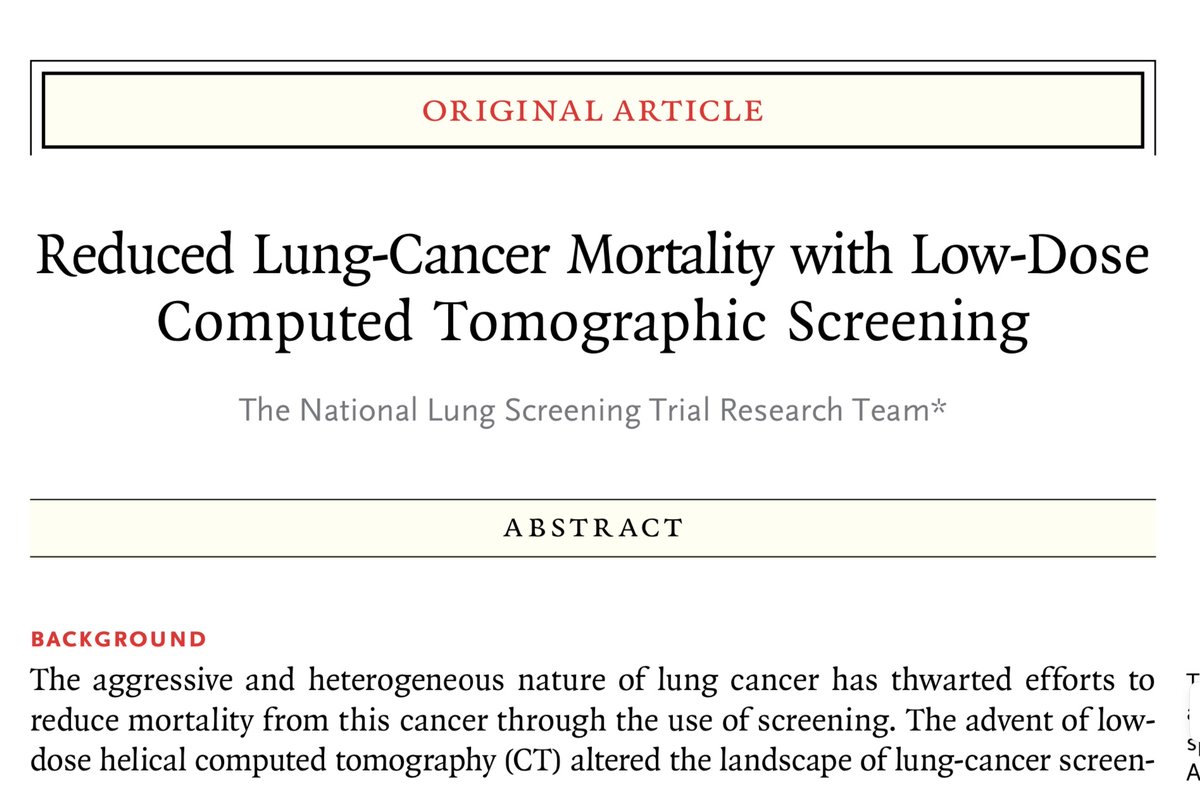
 I’m going to spend the next two days on screening studies. Honestly, I have some trepidation in posting on this topic. There are advocates of screening and sceptics about screening, both vocal, and I’m probably going to disagree with most of them. Let’s look at some evidence.2/17
I’m going to spend the next two days on screening studies. Honestly, I have some trepidation in posting on this topic. There are advocates of screening and sceptics about screening, both vocal, and I’m probably going to disagree with most of them. Let’s look at some evidence.2/17

 We previously discussed a mesothelioma trial on 8 November. On 15 November I also briefly alluded to a study that established platinum/pemetrexed as the standard chemotherapy, in 2004. Today’s study expands the use of immunotherapy into this disease. 2/18
We previously discussed a mesothelioma trial on 8 November. On 15 November I also briefly alluded to a study that established platinum/pemetrexed as the standard chemotherapy, in 2004. Today’s study expands the use of immunotherapy into this disease. 2/18

 Today’s trial takes us back to 2005, when standard first-line platinum doublet was given for 4-6 cycles, followed by a treatment break. People would be followed, usually for a few months, and when their cancer worsened they would get second-line chemo, often pemetrexed. 2/13
Today’s trial takes us back to 2005, when standard first-line platinum doublet was given for 4-6 cycles, followed by a treatment break. People would be followed, usually for a few months, and when their cancer worsened they would get second-line chemo, often pemetrexed. 2/13
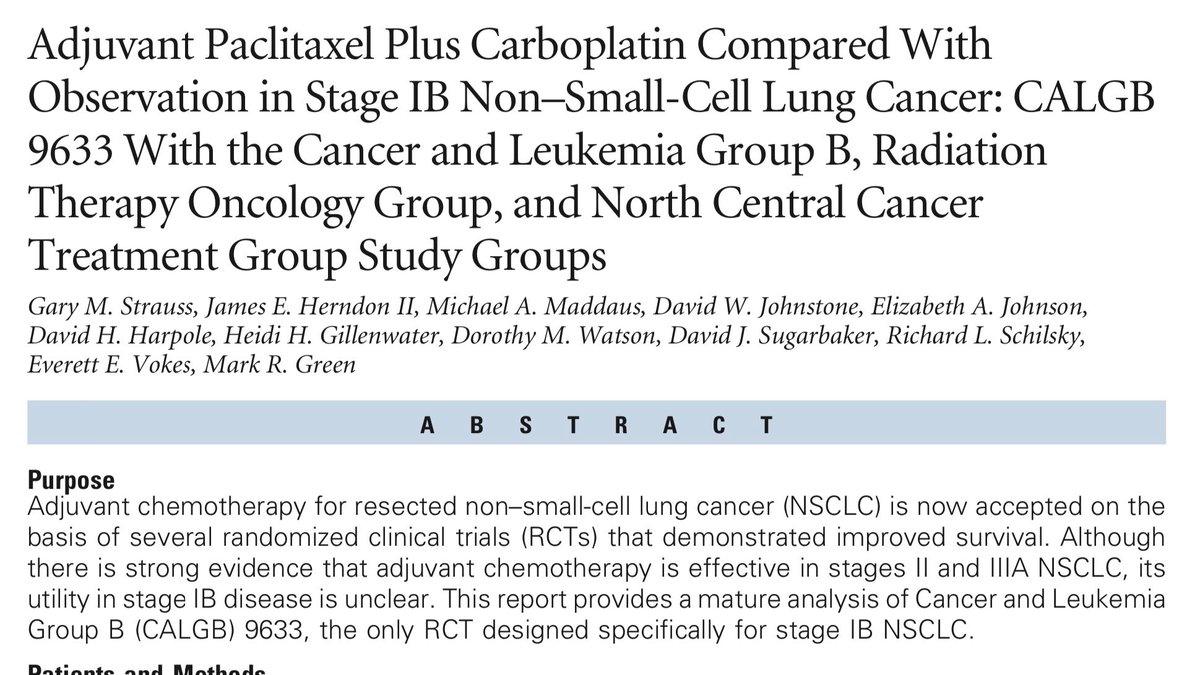
 We have previously looked at adjuvant chemotherapy (Nov 2) and osimertinib (14 November). Today we’ll look at another influential adjuvant study, and ask whether it ought to be as influential as it is. 2/14
We have previously looked at adjuvant chemotherapy (Nov 2) and osimertinib (14 November). Today we’ll look at another influential adjuvant study, and ask whether it ought to be as influential as it is. 2/14

 In our previous discussion of immunotherapy (13 Nov) we talked about the expression of PD-L1 on tumour cells. At the time of this study (2014) there was some evidence that tumours with more cells expressing PD-L1 were more likely to benefit from immunotherapy. 2/14
In our previous discussion of immunotherapy (13 Nov) we talked about the expression of PD-L1 on tumour cells. At the time of this study (2014) there was some evidence that tumours with more cells expressing PD-L1 were more likely to benefit from immunotherapy. 2/14 

 To date we have looked at trials that compared different treatments. Today, we’re going to look at something a little different: a trial of the schedule of supportive medications that are given along with chemotherapy, in this case vitamin B12 and folic acid with pemetrexed. 2/14
To date we have looked at trials that compared different treatments. Today, we’re going to look at something a little different: a trial of the schedule of supportive medications that are given along with chemotherapy, in this case vitamin B12 and folic acid with pemetrexed. 2/14

 This is the most recent study we’ve looked at so far, from 2020. You may recall that adjuvant chemotherapy (after surgery) increases the chances of cure for early stage lung cancer (Nov 2), and also that we have good oral medications for lung cancer with EGFR mutation (Nov 7, 12)
This is the most recent study we’ve looked at so far, from 2020. You may recall that adjuvant chemotherapy (after surgery) increases the chances of cure for early stage lung cancer (Nov 2), and also that we have good oral medications for lung cancer with EGFR mutation (Nov 7, 12)

 The uptake of immunotherapy in lung cancer has been rapid and widespread. In 2014 it was research only: in 2021 it is used in all types of lung malignancies, in almost all stages of disease. We will discuss at least six immunotherapy studies in the remainder of the month. 2/17
The uptake of immunotherapy in lung cancer has been rapid and widespread. In 2014 it was research only: in 2021 it is used in all types of lung malignancies, in almost all stages of disease. We will discuss at least six immunotherapy studies in the remainder of the month. 2/17

 Today we are back to looking at EGFR-mutated lung cancer, with the FLAURA trial comparing osimertinib to either gefitinib or erlotinib in the first-line setting. Today’s discussion is from two papers, one looking at Progression Free Survival, the other at Overall Survival 2/15
Today we are back to looking at EGFR-mutated lung cancer, with the FLAURA trial comparing osimertinib to either gefitinib or erlotinib in the first-line setting. Today’s discussion is from two papers, one looking at Progression Free Survival, the other at Overall Survival 2/15 

 Today we are back to looking at a study of chemotherapy for metastatic non-small cell lung cancer (NSCLC). Our last study in this area (3 November) established the notion that all platinum doublets were more or less the same. Today’s study, from 2008, overturned that consensus.
Today we are back to looking at a study of chemotherapy for metastatic non-small cell lung cancer (NSCLC). Our last study in this area (3 November) established the notion that all platinum doublets were more or less the same. Today’s study, from 2008, overturned that consensus.